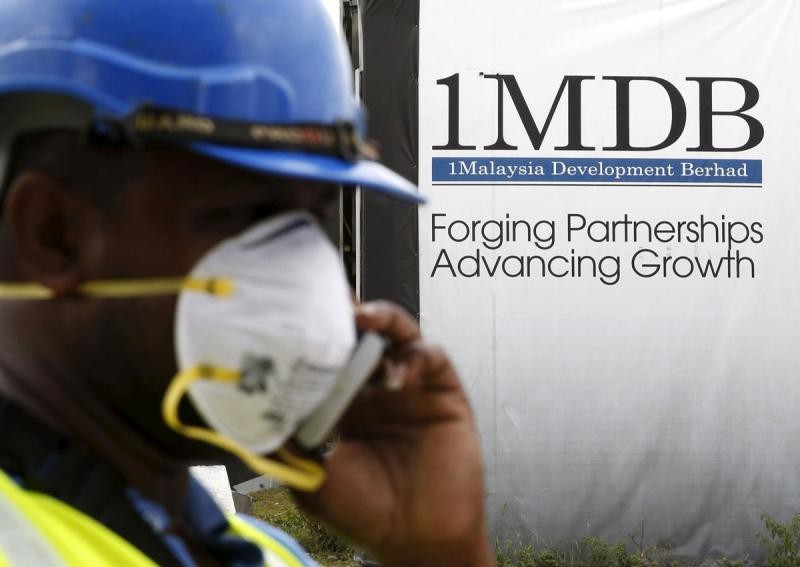PAC's findings on 1MDB confirm worrying suspicion

THE "spinning" that followed the release of the Public Accounts Committee (PAC) report on troubled 1Malaysia Development Berhad (1MDB) - despite grave revelations of widespread governance lapses - came in fast and furious on Thursday.
The PAC report has "clearly established various facts and dispelled numerous allegations against the company", said 1MDB in a statement.
"I note that the PAC's report shows that RM42 billion (S$14.5 billion) is not missing from 1MDB, as had been alleged by Mahathir (Mohamad). It is now clear that his allegations have been false . . . to unseat the government," said Malaysian Prime Minister Najib Razak.
His take on the report's intriguing findings varied quite a bit from the opinion on the other side of the political aisle. "We have been vindicated," said opposition politician Tony Pua, one of 1MDB's most vociferous critics, who is also a member of the bipartisan PAC. "It has been confirmed that 1MDB made over US$3.5 billion of dubious payments to 'Aabar Investment PJS Ltd' of the British Virgin Islands. No one knows who owns this company."
Truth is, if anything, the 106-page parliamentary report - the only conclusive and definitive report so far to be made public on the troubled firm, and a result of almost one year's work of combing through 1MDB management's past decisions, accounts and business dealings - confirmed the most worrying suspicion.
Something went seriously wrong in the firm that started as a wealth fund called Terengganu Investment Authority (TIA) in 2009 and morphed into a strategic investment firm shortly after, and racheted up a hefty RM50 billion debt in a short span. No doubt about that.
The findings prove that 1MDB's shortcomings - big-ticket deals that were hurriedly put together against the tenets of best practices; moving huge sums into firms whose ultimate ownership could not be ascertained; a top management that in more than 20 instances snubbed the directives of its board and stakeholders; and a lack of safeguards to protect its interests - were far more serious than mere "challenges", an oft-used word by 1MDB president and executive director Arul Kanda to describe the firm's woes.
That such widespread management transgressions and oversights in relation to 1MDB's mega-scale, multibillion-ringgit investments could take place about a decade after Malaysia Inc cleaned up its act under a sweeping transformation blueprint to reform its poorly managed government-linked companies (GLCs) into high-performing and competitive entities is as shocking as it is revelatory.
1MDB, according to the report, unlike its state- backed peers, enjoyed wide-ranging privileges: tax breaks; no board representation of stakeholders; rules exemption on board and top management salaries and perks; and guarantees and financial support from the Malaysian government.
Some details revealed by the long-awaited PAC report had already been widely chronicled in newspapers and blogs for over a year, some of which were dismissed as baseless allegations. Now, for the first time, the PAC's findings have shed an official light on 1MDB's opaque deals in the past, suggesting that at least some of them were highly questionable.
Forget the "missing RM42 billion" as alleged by Dr Mahathir, the feisty former premier - for doing so in the context of this latest report may be nitpicking. But what we now know is that there were huge amounts of funds that were paid out by 1MDB to companies abroad whose ultimate ownership cannot be verified by either the PAC or the Auditor-General, as highlighted in the report.
Put aside the reported RM2.6 billion that was transferred into Mr Najib's personal accounts (for now, at least) - which the PAC report makes no mention of.
The findings in the parliamentary report prove that both the board and top management - on whom the firm (and, by extension, taxpayers) depended to carry out their responsibilities diligently to safeguard its interests - were, in fact, derelict in their duty.
As a result of the findings, 1MDB's board has collectively offered to resign. That may be too little, too late, as this very board had stayed put amid the firm's mounting financial woes and whose chairman Lodin Wok Kamaruddin had told the public last May that all was, in fact, well with the firm.
The PAC's report is the outcome of just one of the many probes that are ongoing on 1MDB by regulators in Malaysia and abroad - Switzerland, the US, Britain, Australia, Luxembourg, Hong Kong and Singapore. The Swiss authorities said in February that about US$4 billion may have been misappropriated from 1MDB. The US Justice Department has also reportedly queried bankers on their dealings with the firm.
The PAC has recommended that the authorities probe 1MDB's former boss Shahrol Halmi and other management officials for their lapses. But don't be surprised if the fallout widens in the coming months as a lot more questionable activity is uncovered.
anitag@sph.com.sg

This article was first published on April 8, 2016.
Get The Business Times for more stories.